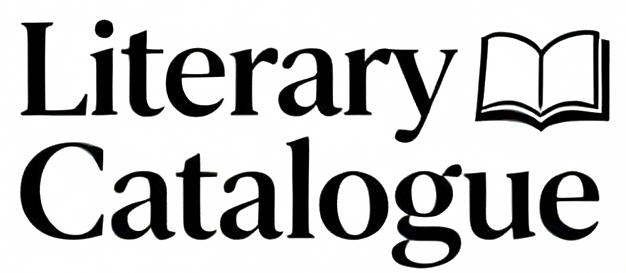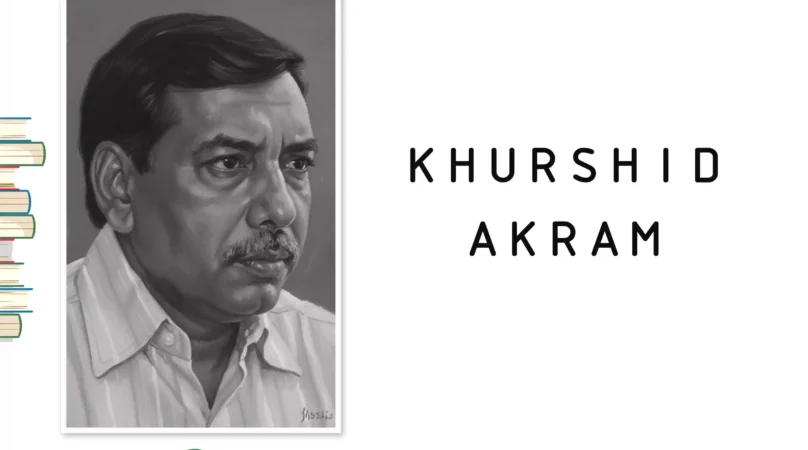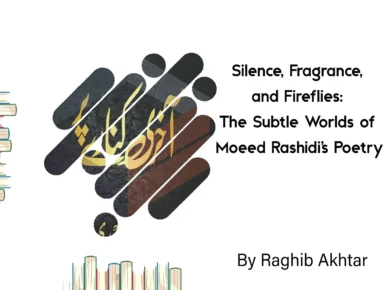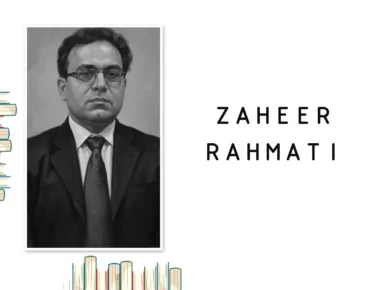Khurshid Akram stands at the confluence of literature and public life, a figure whose four decades of work in Urdu poetry, short fiction, criticism, editing, and translation have fashioned a distinctive intellectual temperament: formally adventurous, ethically alert, and hospitable to the plural inheritances of the subcontinent across India and Pakistan, where his words continue to travel and witness beyond the boundaries of page and place. With Safha Se Bahar (2024), a collection that treats the page as a threshold rather than a wall, his voice presses outward into the realm of breath and memory, shaping a poetics of resistance and remembrance that has consolidated his stature in contemporary Urdu letters.
A life in language
Born in Kolkata on 6 May 1963, Akram learned early to listen in several directions at once—Urdu, Hindi, English, Bengali—so that speech, for him, would never be a single lane but a crossing, a roundabout, a kind of musical interval where idioms pass one another and salute. That sensibility was disciplined at Calcutta University, where an MA in Urdu, First Class, gave him philological rigor and modernist argument, making the classroom a forge from which his intertextual poise and scholarly tact emerged as a signature of his poetry, stories, and essays. The consequence is a writer who inhabits scholarship and street, archive and agora, knowing that literature breathes best when it remembers both the letter and the life that gives the letter its pulse.
Service and editorial stewardship
Selected through the UPSC into the Central Information Service in 1987, Akram spent decades inside the republic’s cultural circuitry—press, broadcast, publications—learning how language behaves in corridors of administration and in rooms of public hearing, the two schools that taught him how to balance clarity with resonance. His years shaping and then helming Ajkal (Urdu) refined a capacious curatorial instinct: special issues, editorial bridges, and a patient hospitality to contending voices, which would later inform his anthologies and critical projects as well as the dialogic energy of his own poems and stories. When he retired as Public Relations Officer in 2021, he carried with him the knowledge that a sentence must work in a hall and in a heart, and that the task of the editor is equal parts listening, tending, and threshold-making.
The arc of the poems
His poetry arcs from award-marked early craft to a late clarity that risks new forms without abandoning lucidity, insisting that the poem remain hospitable and exact at once. Pichhli Peet ke Karaney (2012) moved through circles of critics and state academies, gathering serious attention and further inquiry, a sign that the lines had entered the conversation of their time with durable consequence. In Safha Se Bahar (2024), the erased and the unspoken step forward; birth and death are not terminal points but stations of passage—first call and last light—where memory and resistance braid into a will to leave a trace against official forgetting, the book itself read as a figure for poetry’s life outside the governed frame of the page. The language is pared yet vibrating, a translucence that lets experience show through without dissolving into abstraction, so that the reader hears both the intimate voice and the civic bell it quietly rings.
Stories near the margins
In short fiction, Akram keeps company with the edges: Ek Ghair Mashroot Muafinama (1997) and Raat ki Baat (2022/2023) move with spare economy through rooms where power leaves long shadows—public toilets, tight stairwells, night calls that do not confess a name. His stories travel widely across anthologies and languages because they refuse both ornament and cruelty, preferring to hold the scene steady until dignity reveals itself, particularly in the lives of women and sex workers for whom the world too often drafts only scripts of use or pity. The prose is taut without being brittle; it uses the fewest words necessary to reveal the structure of a harm and the stubborn glow of a person who endures it without surrendering the self.
Criticism, research, editing
As a critic and editor, Akram draws maps rather than fences, tracing continuities and correspondences between Urdu and Hindi, recovering overlooked voices, and sharpening modernist conversations without the noise of polemic. Andaz-e-Nazar Mera collects essays that read like bright windows; the editorial projects on Raj Narain Raz build careful scaffolds of context so that a reader ascends to the work rather than the work being simplified to ground level. His renewed Jadeed Hindi Shairi functions as a bridge-text across languages and traditions, a comparative invitation that treats neighbors as interlocutors rather than rivals, and treats translation as a mode of thought rather than a mere service.
Translation as crossing
Translation, for Akram, is not a ferry that runs only on calm water; it is a practice of ethical listening where idiom, register, and local knowledge must be carried across without damage. From Devki Nandan Khatri and Klasiki Mausiqar to Dr. Zakir Hussain and the Bengali Atma Prakash, his ledger of crossings enlarges readerships and lets genres pollinate one another—memoir leaning toward lyric, the essay borrowing a little of the storyteller’s patience. Jahan-e-Rumi marks a philosophical reach: Sufi metaphysics meeting comparative poetics like two rivers merging at dusk, each tinting the other, neither losing its current.
Pages, platforms, reception
Beyond books, his essays and reviews circulate through urban Urdu journals and allied media, locating his work inside a living print culture that still believes in the slow power of the page. Selections with Delhi-based publishers and accessible platforms keep the writing within reach of classrooms and common rooms alike, so that a young reader in search of a voice finds not a pedestal but a door. Recent reflections on Safha Se Bahar emphasize its emotional candor and philosophical steadiness, reading it as a work of memory that resists the sanctioned amnesia of our era.
Style and recurring motives
Across genres, an ethics of attention underwrites the line: an anti-ornamental clarity that refuses to flatter the reader, and a sustained meditation on time, inheritance, and the right to singularity within the crowd. Birth and death appear as structural poles; between them, voices negotiate family, violence, and the fragile persistence of testimony in language that remains luminous without losing the weight of what it carries. The result is a body of work both intimate and civic, unwilling to hide behind grand abstractions and unwilling, too, to abandon the reader to despair.
Selected bibliography
- Poetry: Safha Se Bahar (2024); Pichhli Peet ke Karaney (2012), books that bookend a journey from invention to risk, from early recognition to late, lucid audacity.
- Short stories: Raat ki Baat (2022/2023); Ek Ghair Mashroot Muafinama (1997), collections that move through the moral acoustics of the everyday without raising the voice for effect.
- Criticism/Editing: Andaz-e-Nazar Mera; Nai Ruton Mein: Raj Narain Raz; Kulliyat-e-Raj Narain Raz; an expanded Jadeed Hindi Shairi, a suite of works that erect bridges and reading rooms across traditions.
- Translation/Edited: Devki Nandan Khatri; Klasiki Mausiqar; Dr. Zakir Hussain; Atma Prakash; Jahan-e-Rumi, a record of crossings that treats each text like a guest whose language must be honored, not replaced.
Laurels and circulation
The recognition gathered by Pichhli Peet ke Karaney across state academies confirmed not a fashion but a presence in the ongoing debate about how Urdu might sound when it speaks plainly and still surprises. The inclusion of his short fiction in widely circulating anthologies and reading lists hints at canon-formation, but the truer sign is that readers have begun to borrow his sentences when they need to speak for themselves.
Multilingual ear, cultural mediation
Fluent in Urdu, Hindi, English, and Bengali, with workable Persian, Akram writes with a multilingual ear that hears the undertow beneath synonym and knows when to keep a word untranslatable so that its fragrance survives. This agility enables cross-border readerships and positions the oeuvre as a living archive of composite culture, a set of pages where the plural genealogies of North Indian modernity continue their unfinished conversation.
Safha Se Bahar and after
Safha Se Bahar catalyzes current conversations on the politics of voice and the eloquence of silence, proposing that some truths must be written at the edge of the page to remain legible to a future reader. In tandem with Raat ki Baat and earlier stories that keep circulating, this late style mentors younger writers toward ethical forms and translingual futures, where clarity is not submission and experiment is not evasion.
Editorial temperament as method
One could say that Akram’s editorial years trained his literary method: to gather, to listen, to arrange, to let disagreement find a grammar without abolishing itself. This temperament appears in the verse as conversation and in the prose as patience, so that even the sharpest critique carries the calm of someone who has chaired many rooms and still believes the table can be widened.
The civic intimacy of form
A notable feature across his work is civic intimacy—the sense that lines are addressed to a community but spoken as if to a friend, where the dignity of the listener is assumed rather than argued. This stance disarms cynicism and makes room for testimony: a woman who refuses the script assigned to her, a worker who claims a name back from a system that preferred a number.
On clarity and risk
Clarity, for Akram, is not simplification but an ethics of exposure—letting the structure of harm be visible without mist and letting the threshold of hope remain unbarred. Formal risk follows from this ethics: the poem may leave the page; the story may end before the verdict arrives; the essay may let two traditions speak without forcing a settlement.
Teaching the ear to slow down
Readers encountering his work often report a slowing of the ear: sentences that ask to be held, images that refuse to be merely decorative, and cadences that draw breath like a careful swimmer approaching a dark river. This slowing is not austerity but an invitation to precision, a way of returning language to its first task—to mean exactly what it must and nothing more.
Influence and community
The influence that younger poets and storytellers acknowledge is not only stylistic but ethical—an insistence that form must answer to life, that experiment must carry witness, and that a multilingual country deserves multilingual craft. Workshops, readings, editorial collaborations, and the quiet mentoring of manuscripts in progress have made of his practice a commons where talent is received without ceremony and guided without spectacle.
The page as threshold
The recurring figure—“outside the page”—names a refusal to keep poetry locked inside typography; the poem, like breath, must exceed its container if it is to live. This is not a rejection of print but a demand that print remember its origins in speech, and that speech remember its obligation to those whose names the records did not keep.
Availability and approach
Residing in New Delhi, Akram’s recent and earlier works remain accessible through reputable platforms and publishers whose circulation keeps him in classrooms and reading circles, in seminar rooms and evening gatherings. Professional listings and publisher channels provide the necessary approach for contact, a bridge between writerly labor and communal life that his career has always sought to maintain.
Closing cadence
What holds together this many-chambered house—poems, stories, essays, translations, edits—is a fidelity to witness and a wager on clarity, the belief that language can still carry an ethical charge without shouting. If the work feels both intimate and public, it is because it refuses to abandon either realm: the singular life and the common world remain in conversation across his pages, as they must, if literature is to remain not only beautiful but also just.
⁂
khurshid akram urdu nazm urdu poet urdu poetry
Last modified: October 13, 2025





